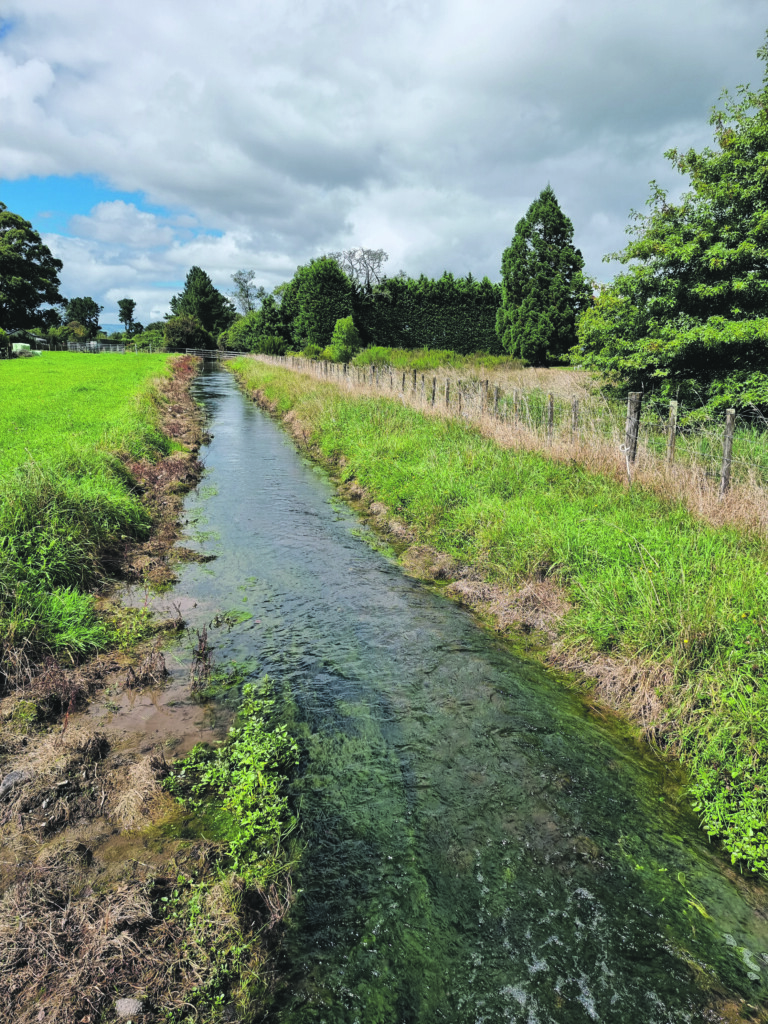Carterton District Council [CDC] is looking for farmer’s opinions on water races and how they are used, maintained, and funded in the future.
Rural Carterton has just over 300km of man-made water races that feed water into two main systems, the Taratahi and the Carrington.
Water races line most of the Wairarapa Valley, delivering water to farms from Masterton to Martinborough.
Carterton’s water race system was engineered and constructed almost 100 years ago, and in order to stay in operation, CDC needs to be granted consent from Greater Wellington Regional Council [GWRC].
To get consent, CDC needs to consult ratepayers. The current consent expires in June 2023.
When first built, the water race was to be the lifeline of the Taratahi Plains, which before this had no natural water courses.
Councillor and chair of CDC Brian Deller said the water race system was constructed in the early 1900s with little mechanical help.
“It was started before the First World War and finished after, when there was an abundance of labour around and people willing to work.
“They were constructed because the Wairarapa plains, especially the Taratahi, had no decent water available for any stock.”
Deller said the system, around 300 kilometres long in total, became the lifeblood of the plains, ensuring farmers had the security of water and they could pastorally farm the land a lot better.
The Taratahi water race is 270km long and takes up to 800 litres per second from the Waingawa River when the river exceeds 3500 litres per second at the gauging site.
When flows drop below 1700 litres per second in summer, the race will take 337 litres per second of that water.
The Taratahi water race winds its way through the Wairarapa plains, what was once called the “Taratahi Desert”, and returns to the river network south of the district.
The Carrington water race is significantly smaller, at only 36km.
It takes up to 50l litres per second from the Mangatārere Stream when the flow exceeds 1200 litres per second at the gauging site.
Deller said the landowners and the ratepayers own the system, and it’s all on private land, but the council administers it.

“We rate all users who have the race going through their property.
“The rate pays for the administration, but also the cleaning and maintenance of the weed control, the coverts, the upgrades of the head works, etcetera.”
Deller said maintenance costs were always rising, as were the regional council consent fees.
He said the council had to be mindful that with the waterway system, constant supply could not be guaranteed.
Deller said the council tried to ensure that people get a good supply, but the people downstream have as much right to the water race system water as the people upstream.
“So be mindful that you are that you are not the only people taking water, and it has to be fair to everybody,” Deller said.
He said a survey had been sent to ratepayers in the mail. The survey is also available online at cdc.govt.nz/haveyoursay.
“At the end of the day, you as the ratepayers, are the owners of the system. So we need to make sure that we are keeping you happy as well,” Deller said.
As part of the consent application, the council has commissioned consulting agency Stantec to assess the overall networks and update the water quality assessment.
Another consulting agency that specialises in built and natural environments, WSP, is completing a water balance for Taratahi to evaluate the contribution of aquifer recharge and the impact on the wetlands identified in the area.
A water balance is an analysis of land or water and its impact on the environment.
CDC said for farmers with alternative water sources or who do not farm their land intensively, costs for upkeep of the race systems can seem a burden.
“However, the fact remains that the best option for the community as a whole is to keep the races, and the races cannot continue to function within their consented conditions unless all people whose land the race passes through understand and adopt this voluntary code of practice.”


